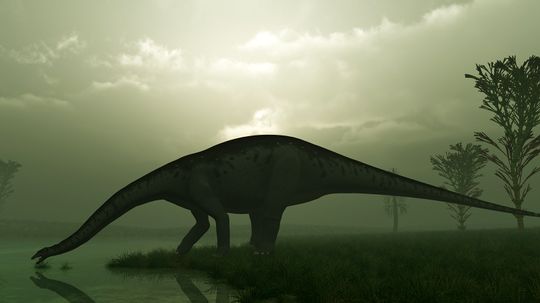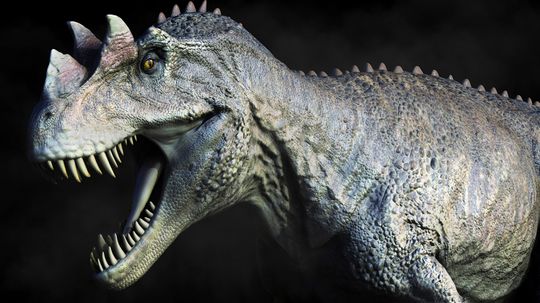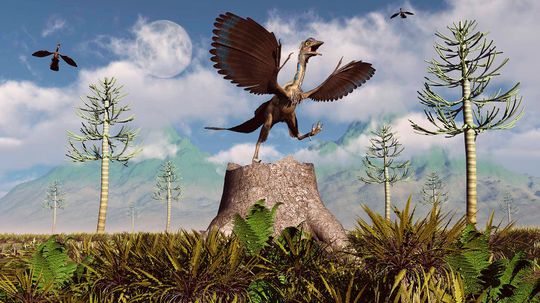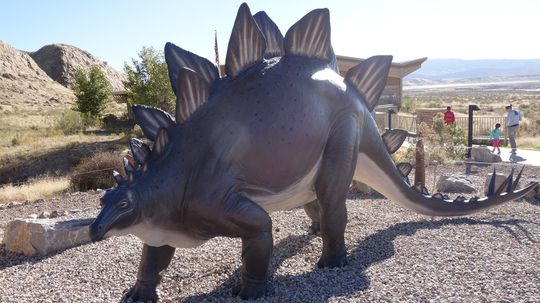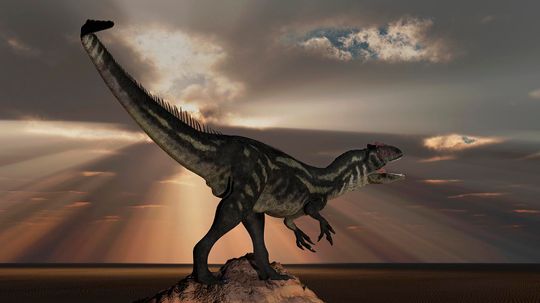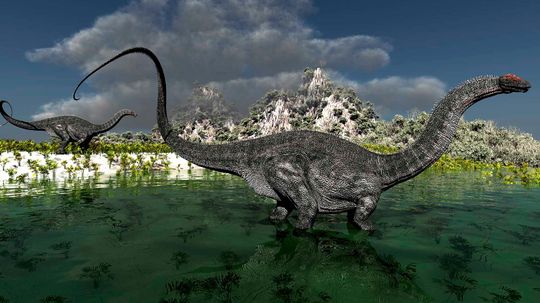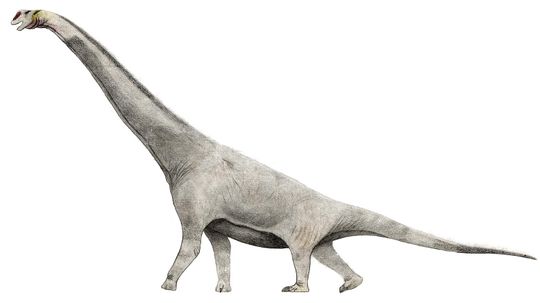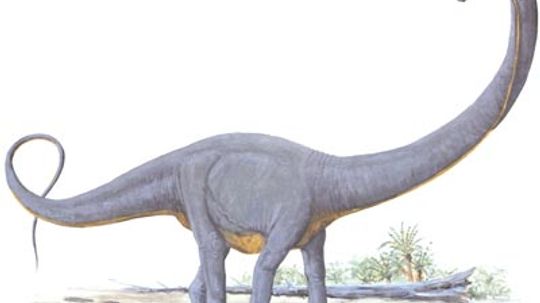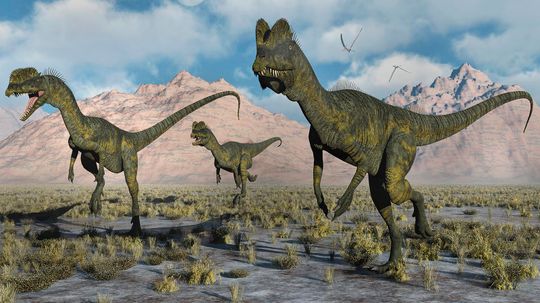Middle and Late Jurassic Dinosaurs
The Middle and Late Jurassic Periods were a time in which the dinosaurs took over the world. Learn more about the Middle and Late Jurassic dinosaurs, including the Yangchuanosaurus, Megalosaurus, and Archaepteryx.

12 Scariest Dinosaurs You'd Want to Avoid While Time Traveling
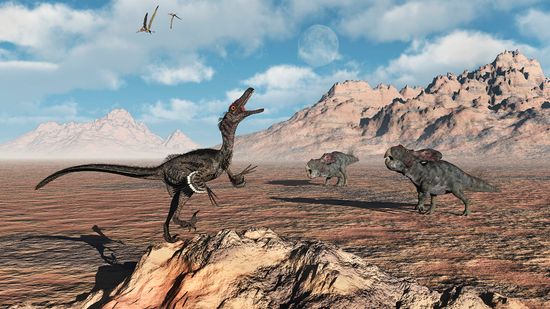
The Smartest Dinosaur (and 9 More Clever Prehistoric Reptiles)
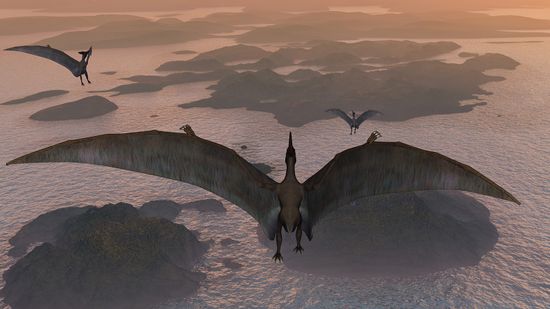
Pteranodon vs. Pterodactyl: Comparing Non-dinosaur Species
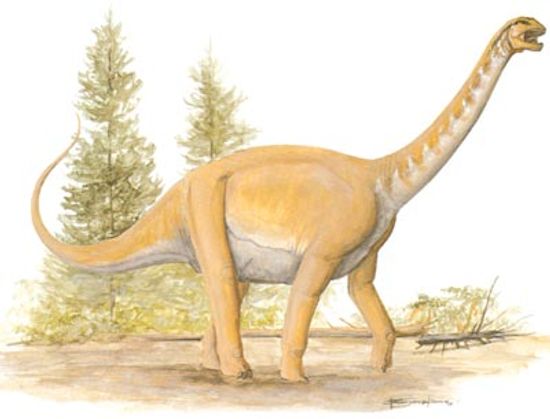
Barapasaurus
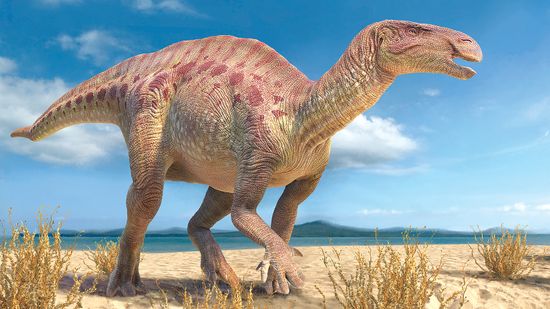
Iguanodon Skeletons Are the Most Complete of Any Dinosaur
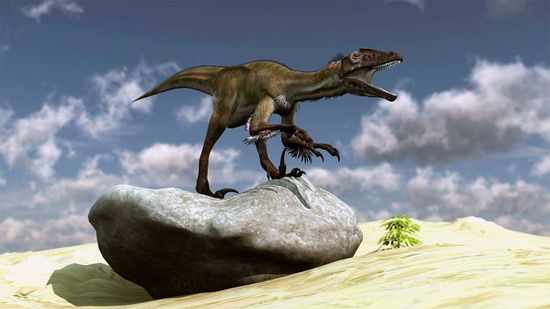
Utahraptor: The Salty Saga of a Killer Dinosaur
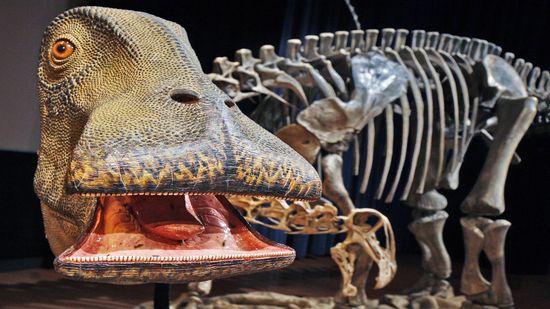
Nigersaurus: The 'Mesozoic Cow' With More Than 500 Teeth
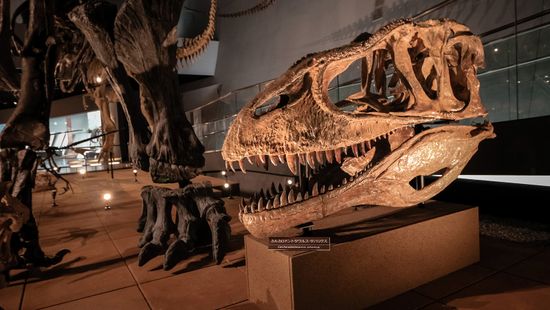
Carcharodontosaurus Rivaled T. rex as a Shark-toothed Hunter
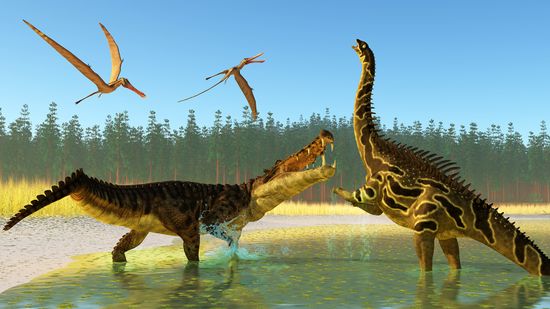
Kaprosuchus Was a Giant, Dinosaur-eating 'Boar Croc'
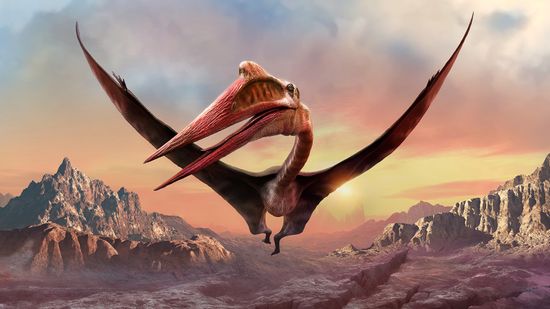
Quetzalcoatlus: The Largest Flying Creature in Earth's History
Learn More
Brontosaurus vs. Brachiosaurus species are easy to confuse. They're two dinosaurs, both giants, both sauropods, but vastly different in some key ways.
By Zach Taras
Hey there, dinosaur enthusiasts! Let’s dive into the world of Ceratosaurus, a predator of the Jurassic period.
By Talon Homer
Fossils of just 12 individual Archaeopteryx, a winged dinosaur that live during the Jurassic, have ever been found. Aside from the rarity, what else makes this unique dinosaur so special?
By Mark Mancini
Advertisement
Stegosaurus, an herbivorous dinosaur from 149 million years ago, walked on four legs, had a long, beak-tipped skull, a row of spikes adorning its tail and a pea-sized brain.
By Mark Mancini
A full grown Allosaurus could be up to 34 feet long, stand 9 feet tall and weigh around 3 tons. This dino was a monster who, scientists suspect, would even eat his own kind.
By Mark Mancini
Apatosaurus was a huge sauropod from the Jurassic period. And there's a debate that's been raging for decades about whether its genus should cancel out the Brontosaurus entirely.
By Mark Mancini
Brachiosaurus has been portrayed in popular culture many times, but the representations of this mysterious dinosaur are largely based on another massive dino called Giraffatitan brancai.
By Mark Mancini
Advertisement
Supersaurus was a dinosaur that truly deserved its name. It measured about 100 feet in length and lived in North America. This dinosaur lived on a diet that consisted mostly of chutes and leaves from the tops of trees.
Perhaps no other beast has been more wildly mischaracterized in popular culture than the crested predator Dilophosaurus.
By Mark Mancini
